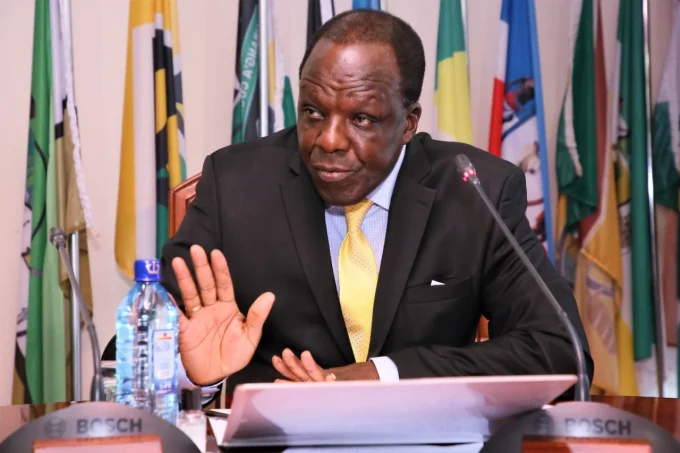In a dramatic move, the Nation Media Group has banned its staff from going to work while intoxicated or reeking of liquor. In a memo to employees at the twin towers, NMG Executive Editor Mutuma Mathiu said those who have a substance abuse problem to stay away from work or seek help from the Human Resource Department.
“Being drunk on duty is a serious breach of discipline. It’s consequences are not pleasant at all. Please do not enter Nation Centre drunk. If you have a substance abuse problem, or know someone who has such a problem, you should seek help from HR as quickly as possible,” said Mathiu, who recently narrated in his weekly column how he worked hard to stop his smoking habit.
Mathiu’s memo follows an incident on Thursday last week when a staff member arrived at work inebriated. The matter has since been handed over to the Human Resource Department for resolution. It is, however, not the first time journalists at NMG are landing in trouble over their drinking habits.
In May last year, veteran journalist Gitau Warigi called it quits after a fellow scribe on the Africa Review desk took a photo of him sleeping after an apparent night of hard drinking and handed it over to the HR department.
The HR people at Nation Centre are said to have summoned Warigi and sought to counsel him on his conduct, which they said did not project a good image. But in Warigi’s eyes, this was meant to tarnish his personal and professional character despite his vast experience and hence the decision to resign. He has, however, been retained as a correspondent.
Before then, two popular TV news anchors, one of whom now works with an international news channel, and a newspaper editor were also axed because of their drinking problems.
In the years gone by, hard drinking and chain smoking was part and parcel of the journalism practice world over with some journalists averring that habit enhanced their writing prowess.
Most exclusives were brewed in steamy, smoke-filled drinking holes where sources, news purveyors and the women of the night made perfect bedfellows. But with the mainstreaming of HR management and professionalism in the sector, those habits are presently rarely tolerated.
SEE: Kenyan journalists mourn death of their favourite watering hole
In his 2011 article Does Alcohol Improve Your Writing? for US Magazine Slate, Anthropologist Brian Palmer says: “According to one study, 71 percent of prominent 20th-century American writers at least flirted with alcoholism.” The article was published the day after the death of Christopher Hitchens, a Slate contributor and hard drinker.

Writing in The Signal, a publication produced by senior students at Canada’s University of King’s College School of Journalism, Rusell Gragg quotes another article published by Slate about a study that found clocking in long hours at work influences the likelihood of excessive drinking.
The study was originally published in the British Medical Journal and says working more than 48 hours per week (a figure common in journalism) raises the probability of “risky” alcohol consumption. For women, this means more than 14 alcoholic beverages a week and 21 for men, Gragg says in the article, Last call is over for the hard-drinking journalist: Why more journalists today are kicking liquor to the curb.
“Journalists work hard, so they like to play hard,” Miroslava Duma, a Calgary Herald editor with more than 35 years of journalism experience is quoted by Gragg as saying. He says drinking on the job became less conventional starting in the 1980s, but worries there’s still a glamorised perception of the hard-drinking journalist.
“It’s dangerous to romanticise the idea of alcoholism. It’s all too familiar in journalism. With any reporter I’ve seen who drinks excessively, they may have claimed it made them a better writer, but it certainly didn’t make them a better person. Alcohol has the ability to ruin your family, career and ultimately your life.”
But also writing in Slate, Jack Shafer offers to disagree saying every profession needs what academics call an “occupational mythology” to sustain it, a set of personal and social dramas, arrangements, and devices, as sociologist Everett Hughes put it, “by which men make their work tolerable, or even make it glorious to themselves and others.” As hard drugs are to the hard-rocker and tattoos are to the NBA player, so booze is to the journalist—even if he doesn’t drink.
READ: Why journalists brains operate below average
“The journalist likes to think of himself as living close to the edge, whether he’s covering real estate or Iraq. He (and she) shouts and curses and cracks wise at most every opportunity, considers divorce an occupational hazard, and loves telling ripping yarns about his greatest stories. If he likes sex, he has too much of it. Ditto for food. If he drinks, he considers booze his muse. If he smokes, he smokes to excess, and if he attempts to quit, he uses Nicorette and the patch,” he says in the article, The Whiskey Rebellion: In praise of booze in the newsroom.
Backgrounding credit: madam.co.ke












Leave a comment